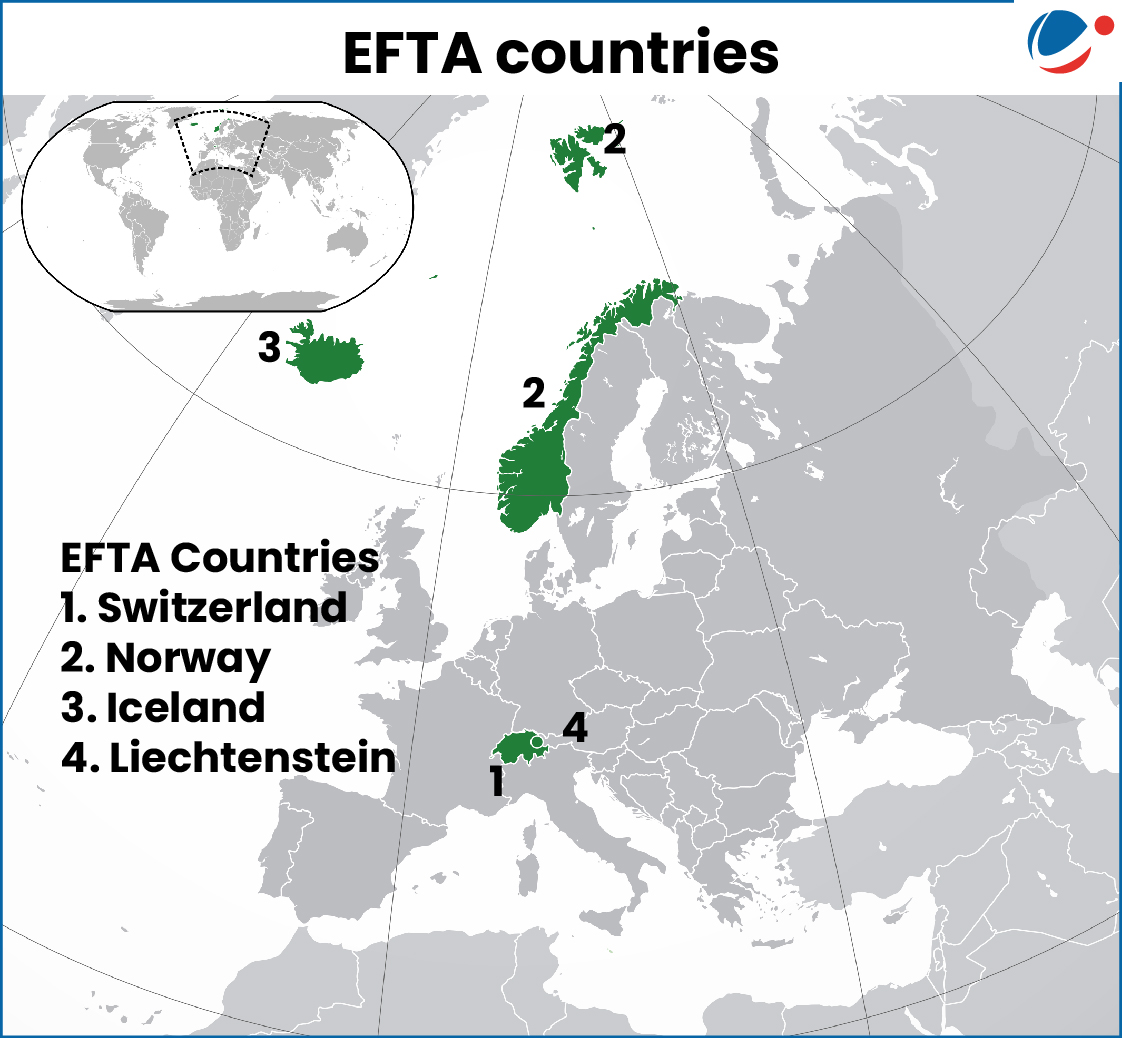Why in the News?
India-European Free Trade Association (EFTA) Trade and Economic Partnership Agreement (TEPA), signed on 10 March 2024, came into effect from 01 October 2025.
Key Features of the Agreement
- Capital Investment: EFTA will promote investments worth USD 100 billion in India over 15 years-a major boost to "Make in India".
- This is accompanied by the creation of one million direct jobs in India, a first in any FTA signed by the country.
- Market Access for Goods: Indian exporters in sectors like machinery, organic chemicals, textiles, and processed foods to have improved access to EFTA markets enhancing competitiveness, and reducing compliance costs.
- Under TEPA, EFTA has offered 92.2% of tariff lines encompassing 99.6% of India's exports.
- Boost for Services and Mobility: It is the first Indian FTA to include Mutual Recognition Agreements (MRAs) in regulated professions like nursing, chartered accountancy, and architecture, making it easier for Indian professionals to work in EFTA countries.
- Improved access via: Mode 1: Digital delivery of services, Mode 3: Commercial presence and Mode 4: Greater certainty for entry and temporary stay of key personnel.
- Intellectual Property Rights: TEPA ensures IPR commitments at TRIPS level, along with fully addressing India's interests in generic medicines and those related to evergreening of patents.
- Sustainable and Inclusive Development: It will foster transparency, efficiency, simplification, harmonization, and consistency in trade procedures.
- Technology Collaboration: Access to world leading technologies in precision engineering, health, renewable energy, Innovation and Research & Development.
- Reinforces India's Global Image: Positions India as an equal negotiating partner with advanced economies, ensuring outcomes aligned with its long-term strategic and developmental interests.
 About EFTAEFTA is an intergovernmental organisation set up in 1960 for the promotion of free trade and economic integration to the benefit of their trading partners across the globe.
|
Issues with the agreement
- Limited Benefits for India: For India, the benefits are limited in terms of trade in goods, given pre-existing low tariff rates in the EFTA bloc and most imports already receiving tariff-free treatment.
- The agreement mainly favours EFTA exports to India through tariff reductions and better market access.
- Trade imbalances: Despite modest current trade volumes India exported goods worth around USD 1.97 billion to EFTA in FY25 against imports of USD 22.44 billion.
- Limitations of the pact: Several analysts warned that India is likely to keep facing difficulties in exporting farm produce to Switzerland due to a complex web of tariffs, quality standards, and approval requirements.
- Key agricultural items including dairy, soya, coal, etc., placed on the exclusion list.
- Limited Investment Options: The investment section of the deal excludes pension and sovereign wealth funds.
Conclusion
TEPA serves as both an economic and diplomatic asset and is India's most forward-looking deal. In an era where trade is increasingly tied to resilience, supply chain diversification, and climate commitments, it sets a new benchmark for future global partnerships.






